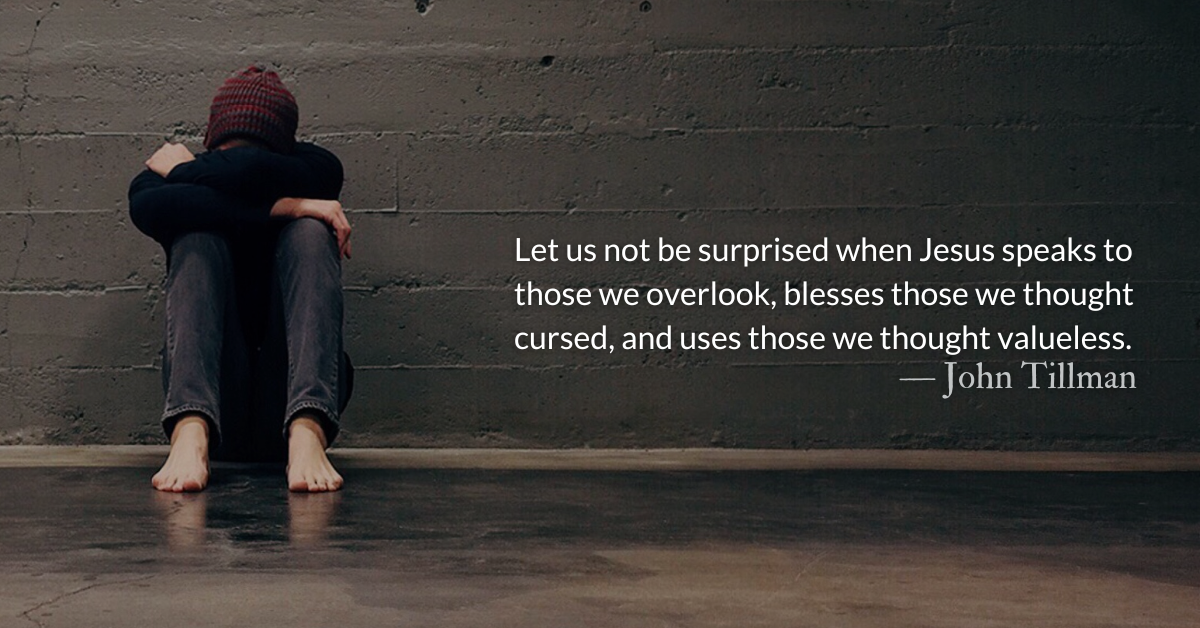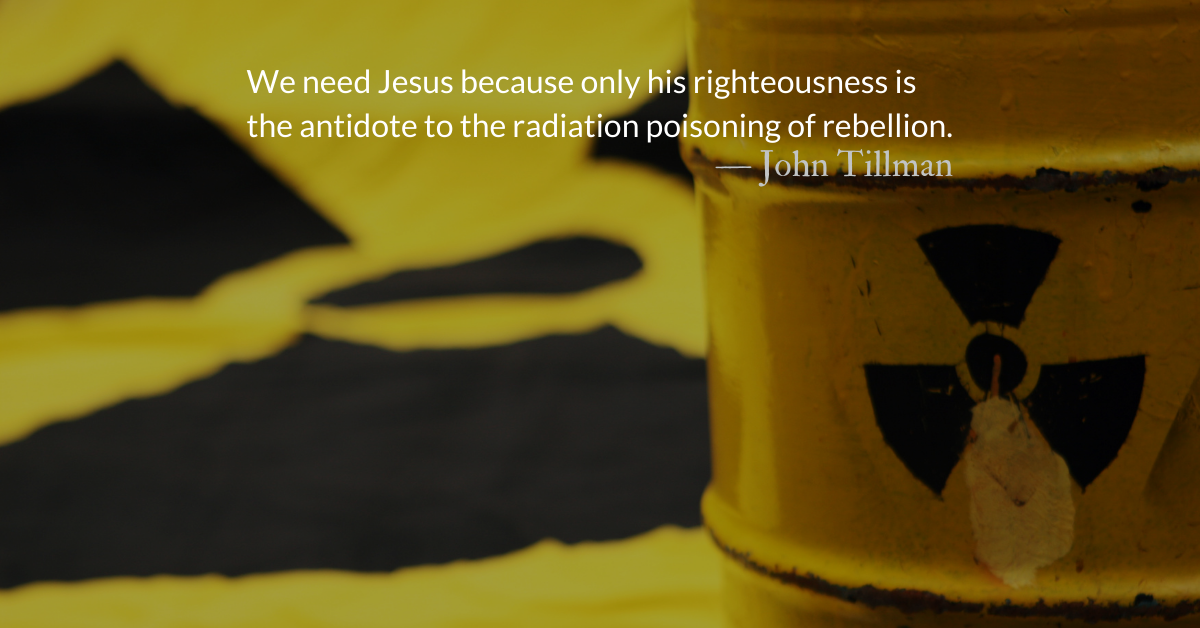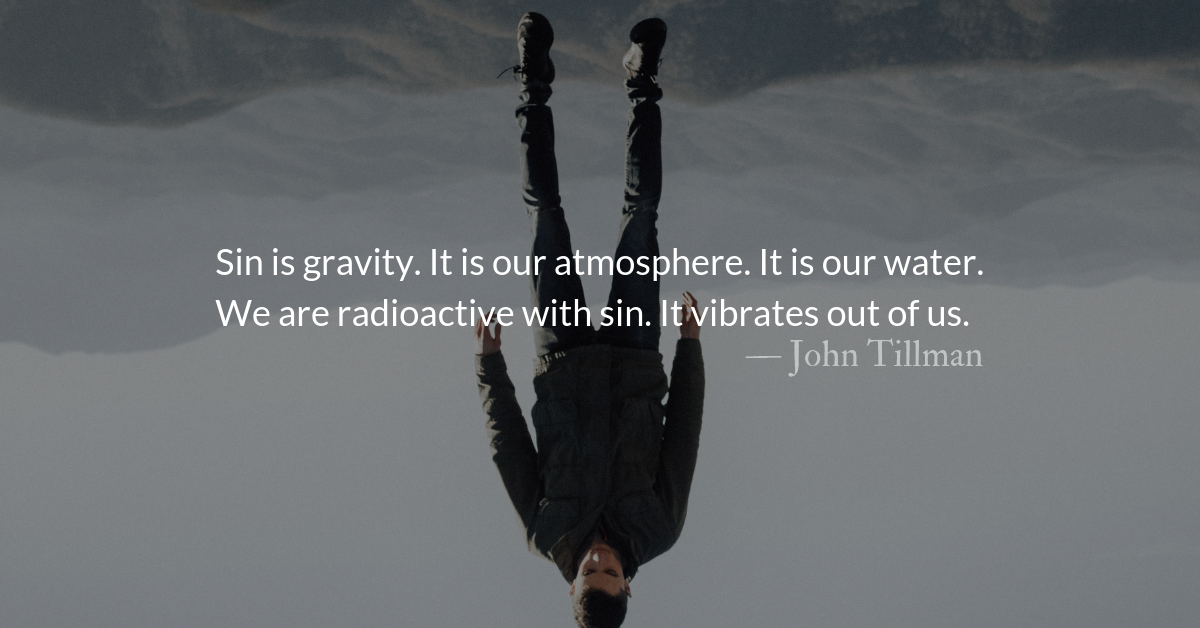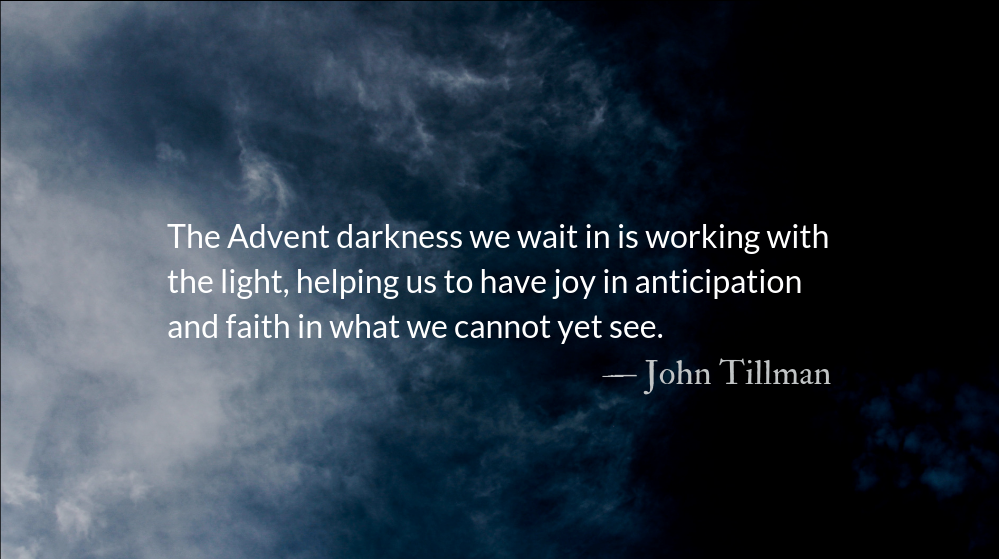Scripture Focus: John 9.30-33; 39-41
30 The man answered, “Now that is remarkable! You don’t know where he comes from, yet he opened my eyes. 31 We know that God does not listen to sinners. He listens to the godly person who does his will. 32 Nobody has ever heard of opening the eyes of a man born blind. 33 If this man were not from God, he could do nothing.”
39 Jesus said, “For judgment I have come into this world, so that the blind will see and those who see will become blind.”
40 Some Pharisees who were with him heard him say this and asked, “What? Are we blind too?”
41 Jesus said, “If you were blind, you would not be guilty of sin; but now that you claim you can see, your guilt remains.
Reflection: Blinded by the Light of the World
By John Tillman
Until he is made to see, no one treats the blind man as a person, except Jesus. To the disciples, the blind man is just a theological quandary. They talk about him as if he is not there. Only Jesus speaks to him, instead of just about him. Jesus tells the blind man, and his disciples, that he is the light of the world.
The man’s blindness, in a way, made others blind to his value. He couldn’t work. He couldn’t enter the Temple and worship in the traditional ways that others worshiped. He couldn’t attend Hebrew school and learn to read the Torah as other boys had. He was not included in theological education.
However, when he was questioned by the council, his responses revealed that he had been listening. They had taught him their theology with their calloused words and actions. And he remembered. He experienced the difference between how they treated him and how Jesus treated him.
He lectured the teachers with overheard lessons. He knew that those who were “sinful,” like him, were not expected to be heard by God, called by God, or used by God. “We know that God does not listen to sinners…” Therefore this Jesus, this mud-making man who claimed to “do the works of him who sent me,” must not be a sinner. He must be something else. He must be what he claimed to be—the light of the world. Rather than learn from this light, the leaders end up blinded by it.
Let us not, as followers of the light, become blinded. Let us not be surprised when Jesus speaks to those we overlook, blesses those we thought cursed, and uses those we thought valueless. Let us not be surprised to learn lessons about Jesus from those who just met him.
We are to be the light of the world. Our hands are to do God’s healing work. Let us open our eyes to see what kind of light we are shining and what kind of work we are doing.
Do we treat people as theological quandaries to be puzzled over?
What theology are our words and actions teaching?
Who around us do we think God won’t listen to?
Who are those whose value we are blind to?
Jesus, cover our eyes with mud and send us to wash away our blindness, that we can say, “…but now I see.”
Divine Hours Prayer: The Refrain for the Morning Lessons
Purge me from my sin, and I shall be pure; wash me, and I shall be clean indeed. — Psalm 51.8
Today’s Readings
Genesis 9-10 (Listen 7:19)
John 9 (Listen 7:33)
Read more about Steeped In Sin
We can blind ourselves, like the Pharisees, refusing to see our sin. Or we can admit our former blindness…
Read more about Supporting Our Work
January is a great time to become a monthly donor. Please consider becoming a monthly donor for 2023. Support ad-free content that brings biblical devotionals to inboxes across the world.










